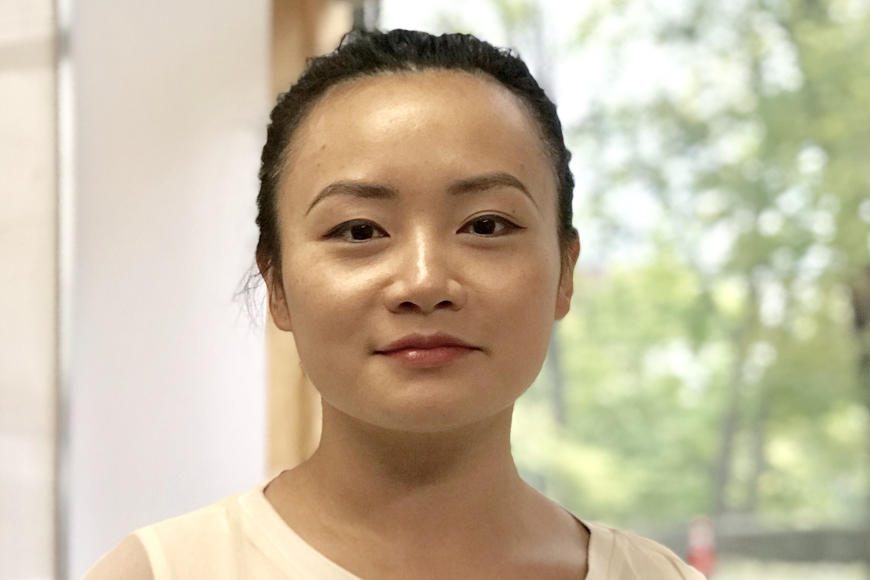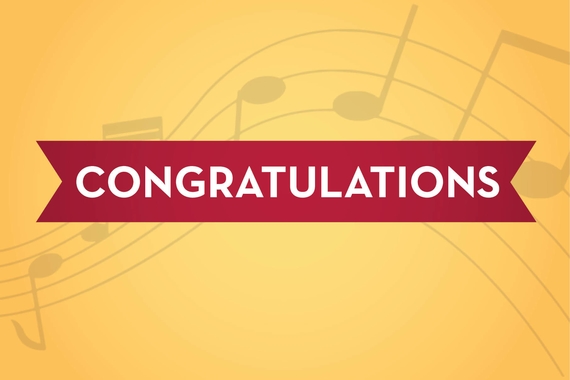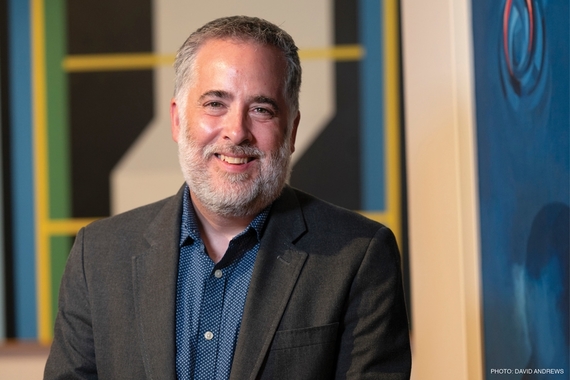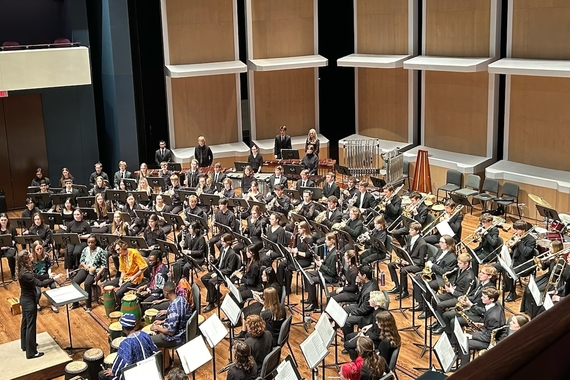Qinqing Hilkert conducts Chen Yi's Symphony No. 2
Qinqing Hilkert, DMA conducting candidate, takes time to discuss Chen Yi's Symphony No. 2, which she will conduct on October 23rd with the University Symphony Orchestra. The concert will begin at 7:30 pm (CT) in Ted Mann Concert Hall and include Shostakovich’s Symphony No. 7 “Leningrad” conducted by Mark Russell Smith. This performance is free to attend and will also be live-streamed z.umn.edu/musicstream.
Who is Chen Yi?
Chen Yi is a Chinese-American composer and professor who blends Chinese and Western traditions, transcending cultural and musical boundaries. She holds degrees from the Beijing Central Conservatory and Columbia University. She is a strong advocate for new music and composers.
Why do you find Symphony No. 2 special?
This piece is so special because there are so many thoughts in there. Chen Yi wrote this piece not long after her father passed away. She recycled motifs from her other pieces to form a completely new one. She is not just thinking about death, she is mostly thinking about what we learn from the past and what we can pass on to the future. And that has become my mission.
I’m in this unique situation -- I have so many labels on me: woman, immigrant, Chinese, American, conductor, classical musician. Conducting this piece is about bridging so many parts of who I am. I was educated entirely in Western music. I hold five degrees in it! I was in denial of Chinese music, even though I knew it was in my blood. I wouldn’t choose to listen to it. I wasn’t drawn to it. But now, after almost 10 years of being in this country, I had a realization. Chinese music is part of me. This piece is fitting my own mission from my whole life. There’s something I can learn from my past and do for younger generations, for females, to awaken something we need to think about.
Why did you select to perform this piece with the University Symphony Orchestra?
I did lots of research on the piece for a theory class, and while many scholars wrote about it, I still felt something was missing. It is the conductor's job to make the connections and make sense of it. I am Asian. I wasn’t born in this country. There is not a Chinese word in this whole piece, but because of who I am, this piece speaks to me so fluently. I understand it.
In my culture, everything means something. Even a sigh and a tilt of your head mean something. There is so much happening in this piece, I can literally visualize the choreography. I can see the long, beautiful silk robes, I can see the elegant hand gestures of the Chinese opera singers. I can see the traditional drums. I can hear the traditional flutes. I see it and I know exactly how I want it to sound. I can feel what the music means. I’m trying to translate what I see to what I’m supposed to hear.
How did you share what you can hear in the piece with the musicians?
I left breadcrumbs for all the players. I wrote something for them, to help Western students understand what is happening around them in the music and the culture so they know how to dig into this piece and into their part. I try to translate that language — the sheet music, the modern scoring —because all they see is just one line of music. So I gave them something that interprets the music into what I understand and want to hear. For example, most of the percussion parts literally use western instruments to represent traditional Chinese instruments. These instruments represented different characters that connect scenes, enhance the tension, and create atmosphere. But the Western musician would not know that just from the sheet music or scoring notes alone. So I wrote to them about that.
What will be going through your mind when you take the podium to conduct this piece?
Respect. I will feel so much respect for the culture. I feel like there is so much I have to learn. There are so many things I do not know. I am still learning every day. It’s like going into an ancient church or temple, and you just admire the structure of the masterpiece. All you need to do is just patiently absorb everything with respect: the sounds, the smell, the shapes, the color.
Do you have any advice for the audience on how to listen to Chen Yi's Symphony No. 2?
Try not to have any pre-judgemental feelings. You don’t have to feel like the music you hear is good or bad, loud or crazy, scary or calm...just let it speak. Let the music bring you through a tunnel into a world you have never seen before. Gradually listen to music coming from a different corner of the world. There are so many unknowns, so much diversity in that music. So many other ways of hearing resonance. Listen and feel first, then maybe talk or maybe don’t. If you feel one thing — that’s good. If you feel ten different things — that’s also good. Nobody is measuring.
What is the most challenging part of the work for a conductor?
Chen Yi is so good at connecting with the Chinese part and with the Western part. So unless you know both, you’re always going to miss something. It’s so difficult! It’s hard for conductors and players because you know you have to do so much research to be sure and to let them know what to read from the sheet music.
Does Chen Yi know you will be conducting her symphony?
Yes. I wrote to her to ask about some articulation questions and updated her on what we’ve been doing, but that's it. As a conductor trained in the Western tradition, I would not hesitate to ask anything about the piece. But I’m a split culture - so in English, I feel totally ok asking anything. But in Chinese, I am much more careful. Don’t forget the purpose of this piece — what and why she wrote it. I think about how difficult it might be for a composer to be asked and to reopen this wound again and again and again. So I would hesitate and limit my questions - I don’t want to accidentally hurt people.
Is there anything you would like her to know?
If she has more pieces to commission, I would like to do the first reading! I am deeply related to the culture on both sides. I have no language problem. And as Chinese and as American, I know this. I am a bilingual speaker, not just of Mandarine and English, but French, German and Italian too. I know how to represent multicultural music. So here is how I represent this.



